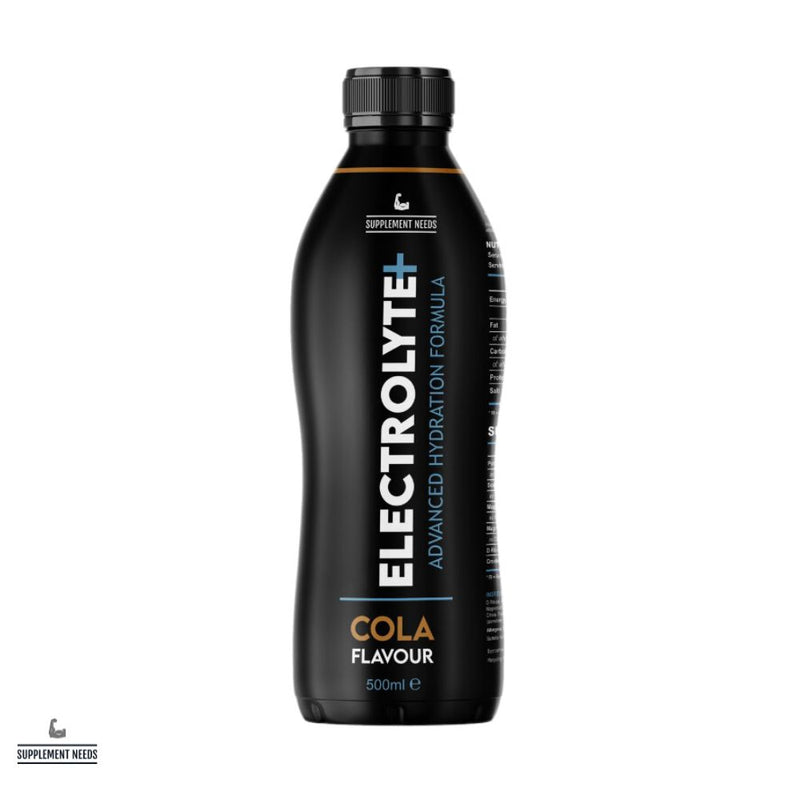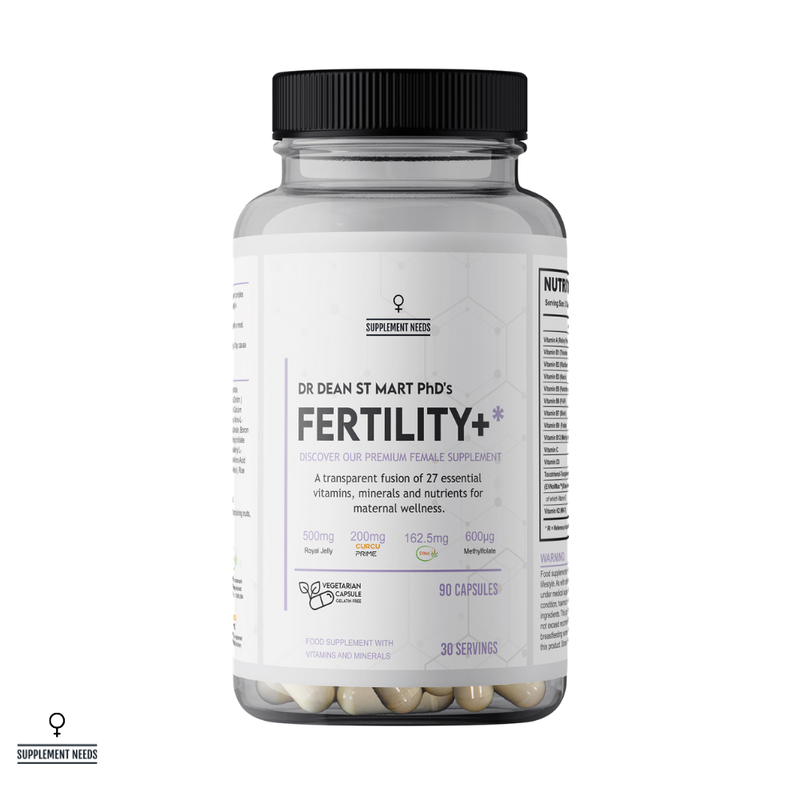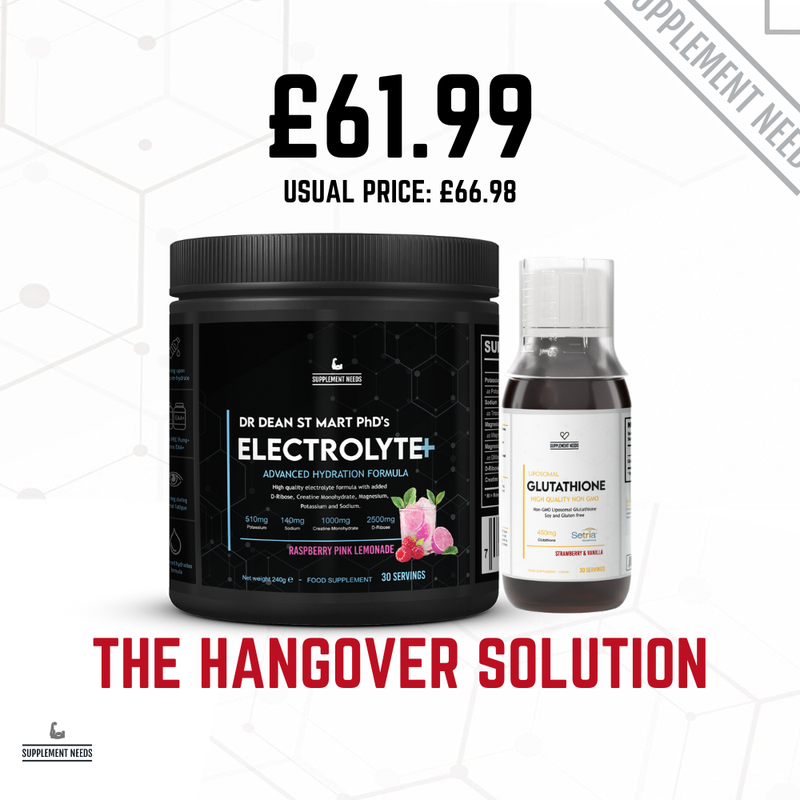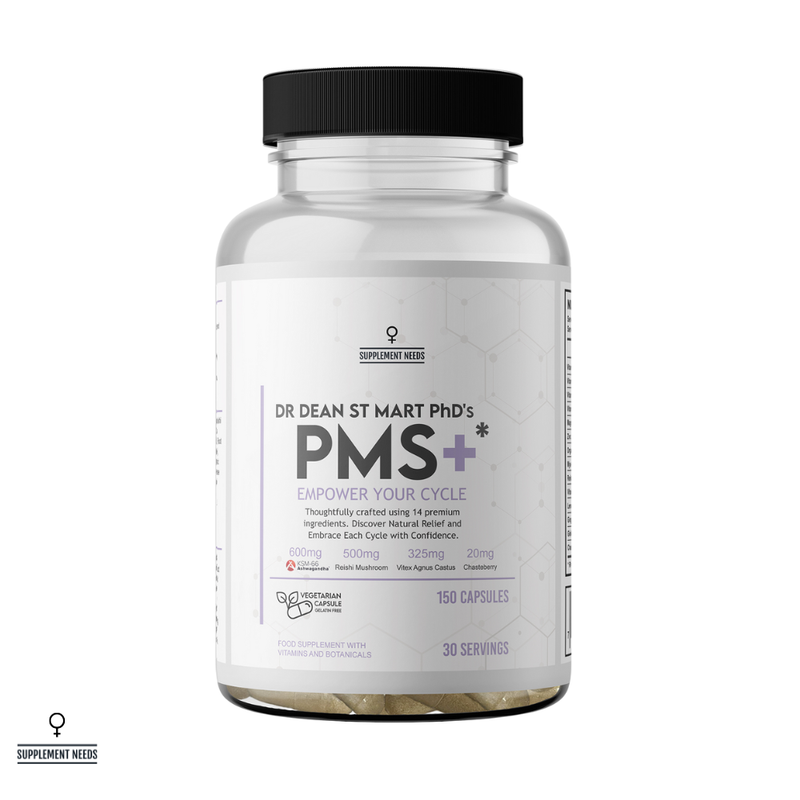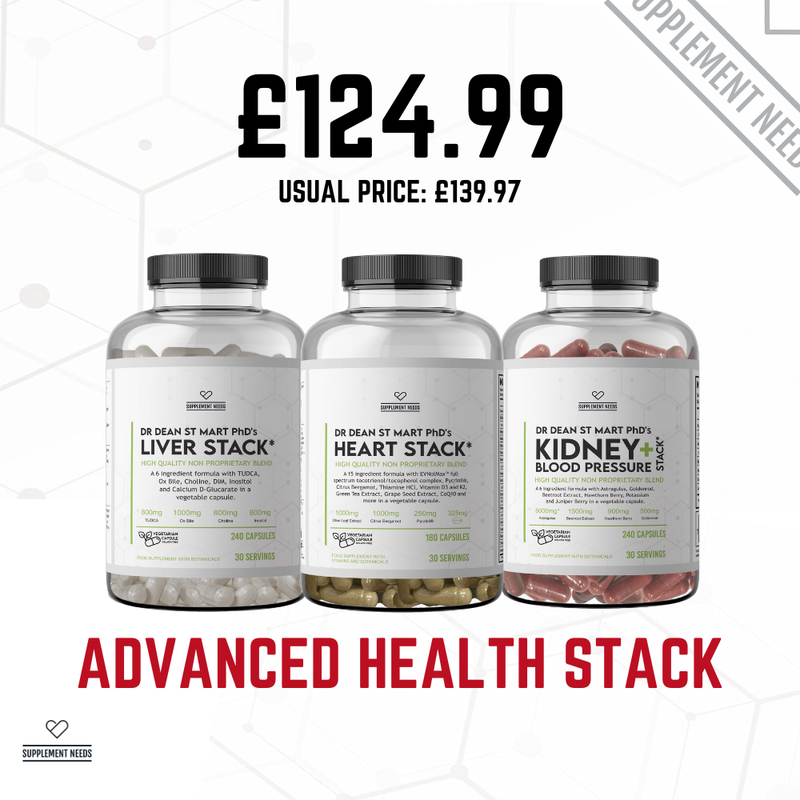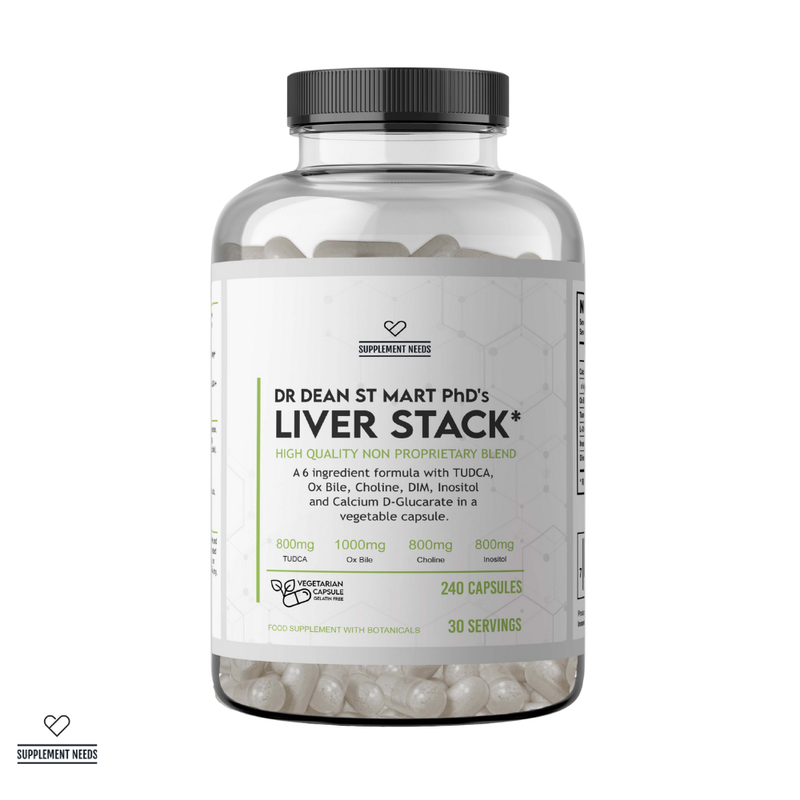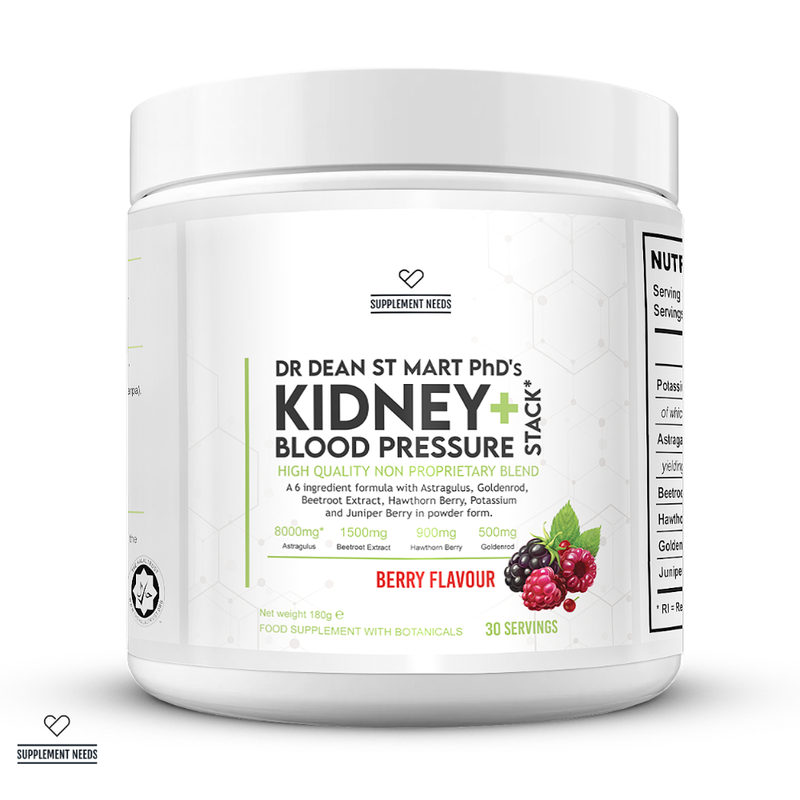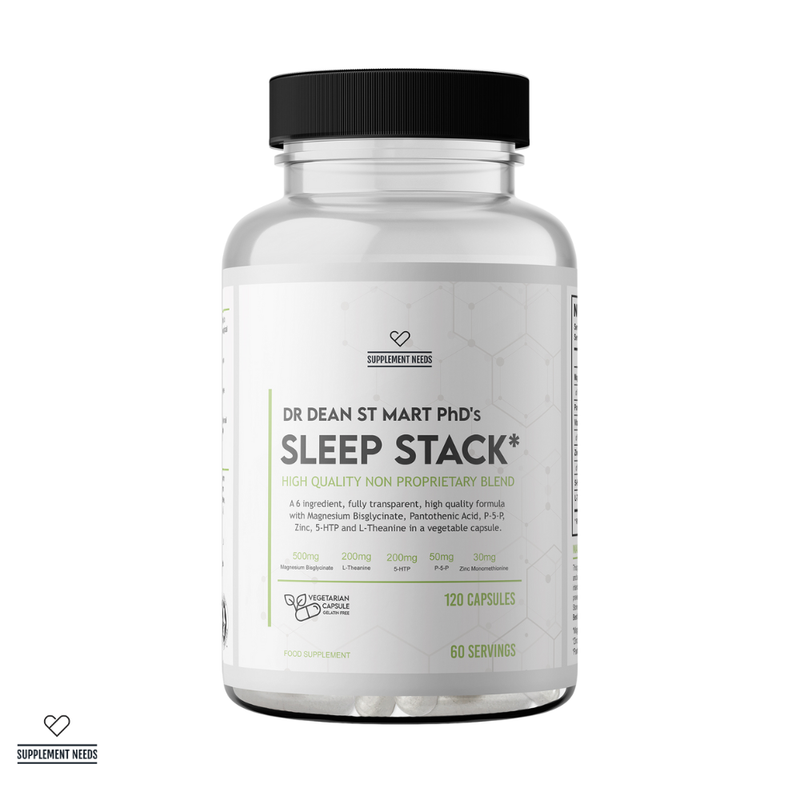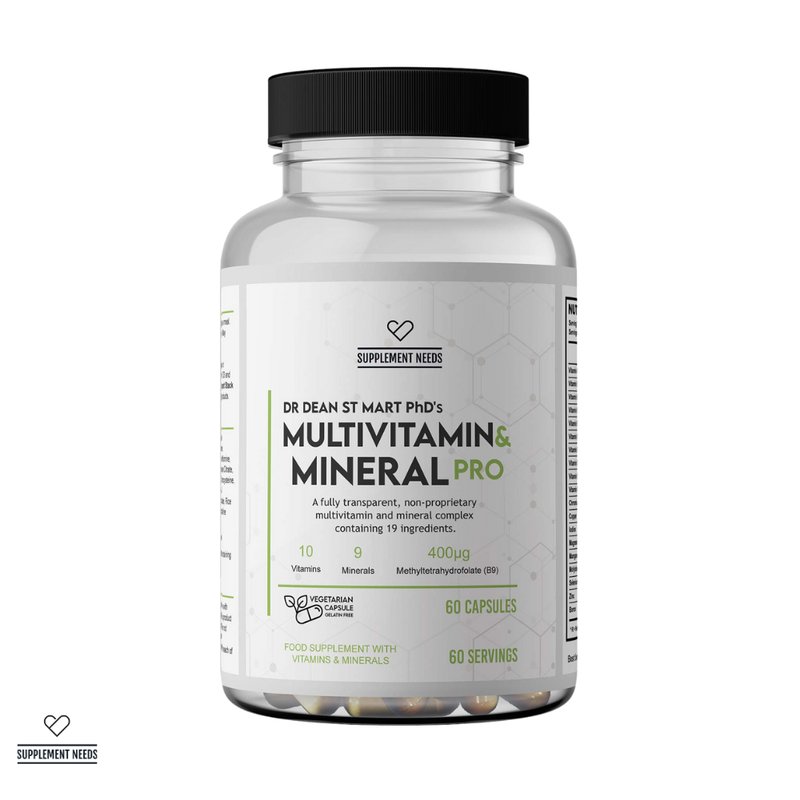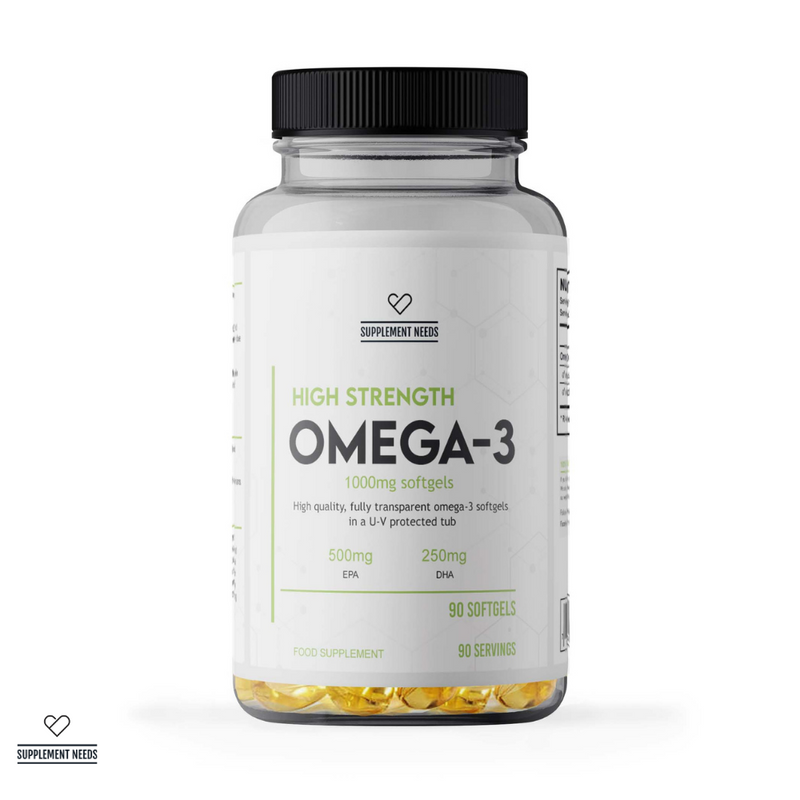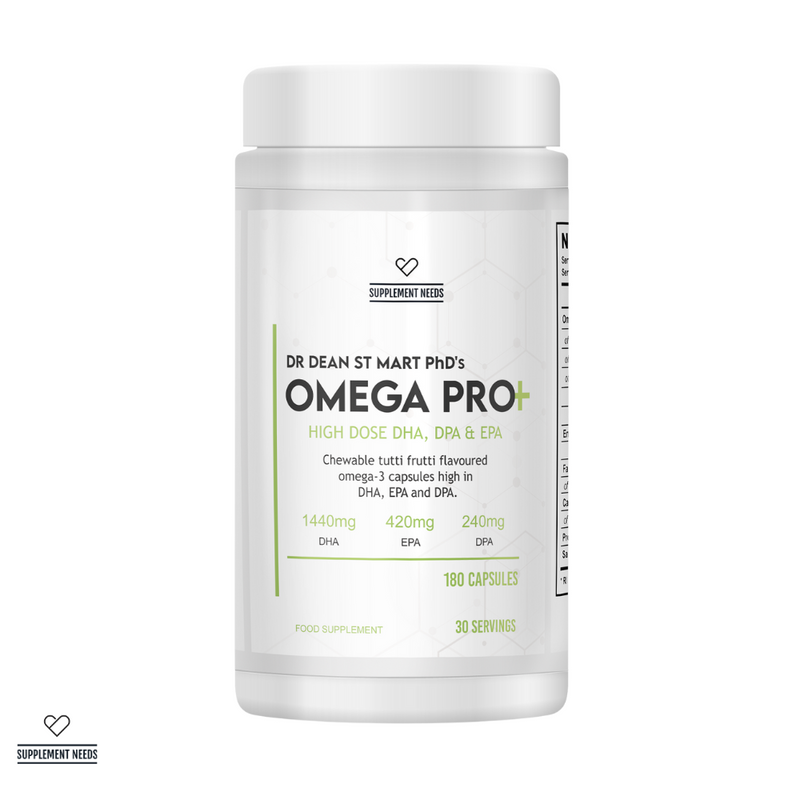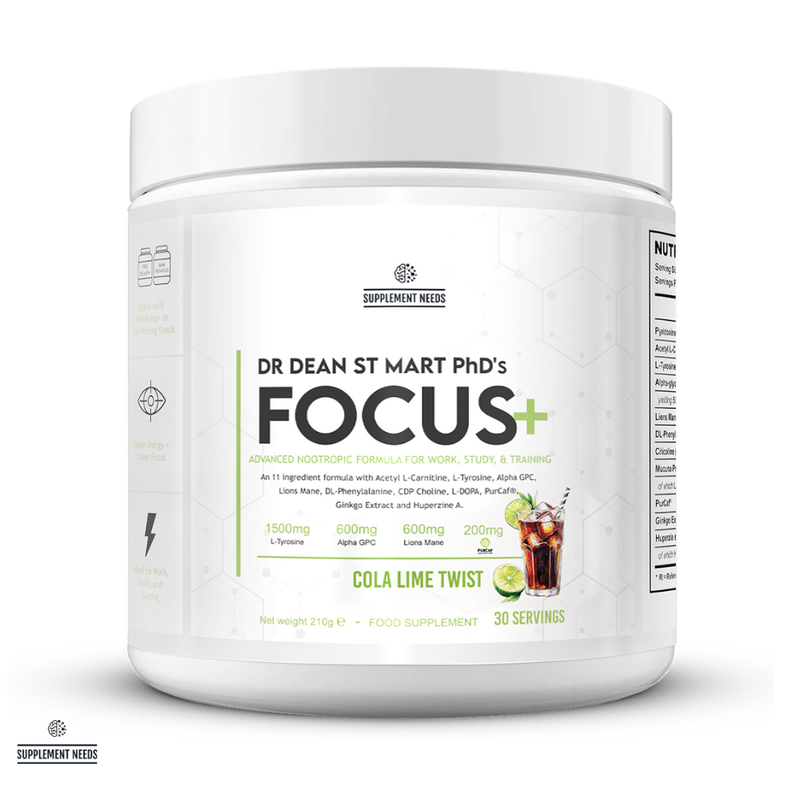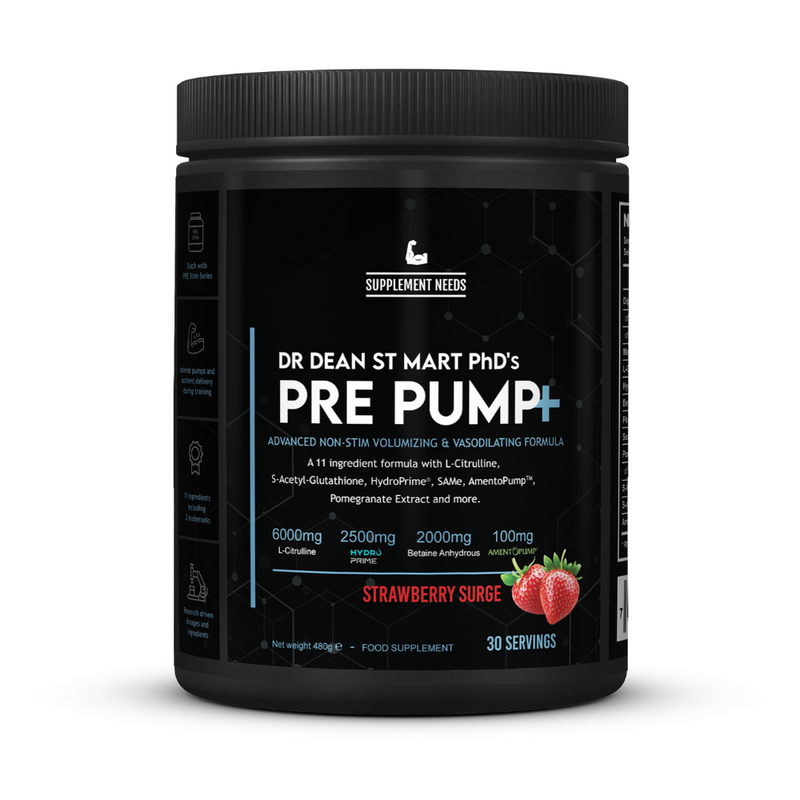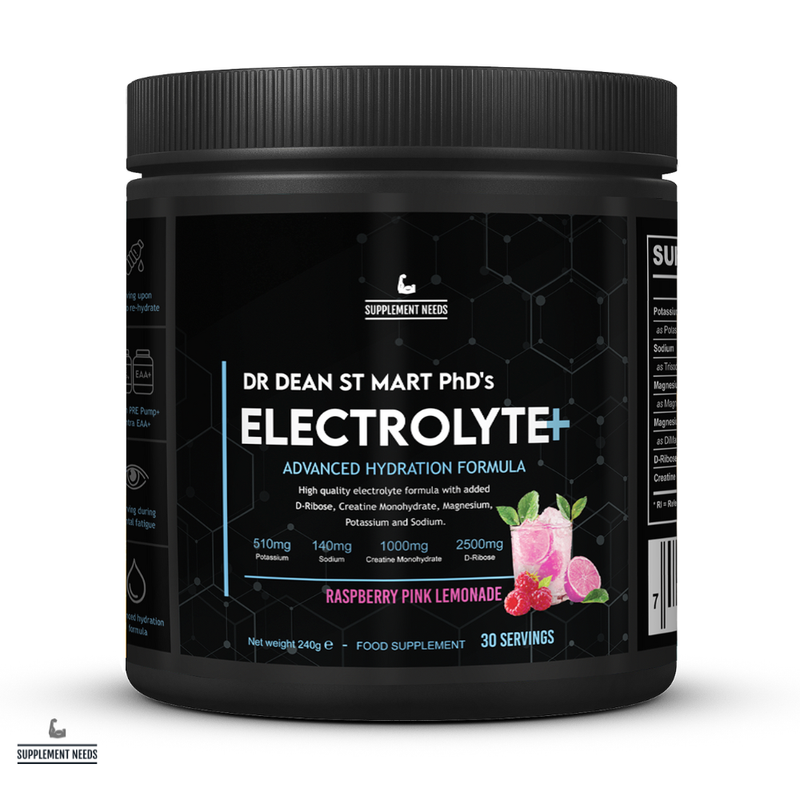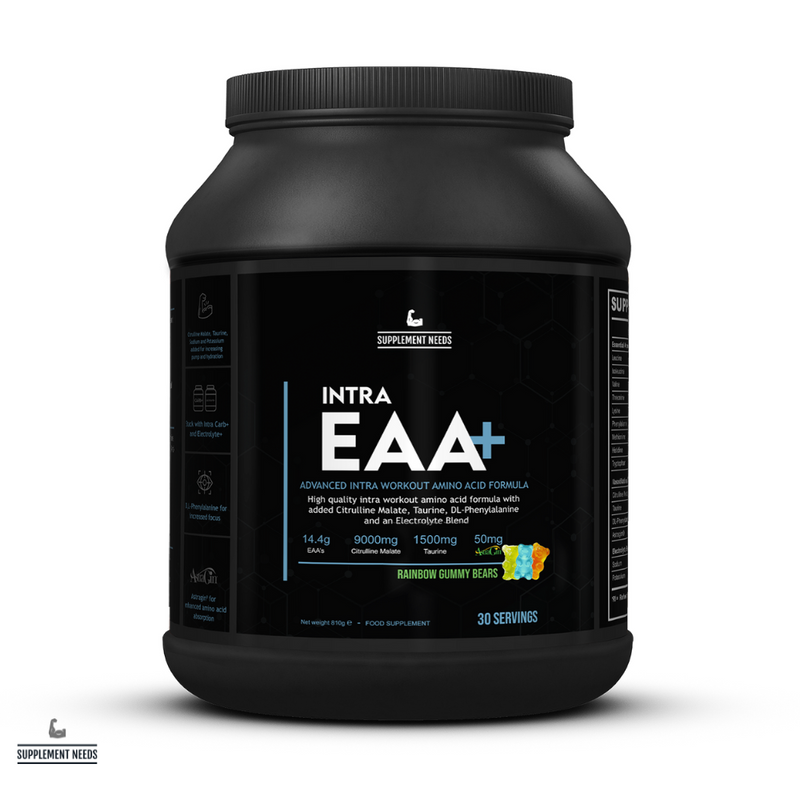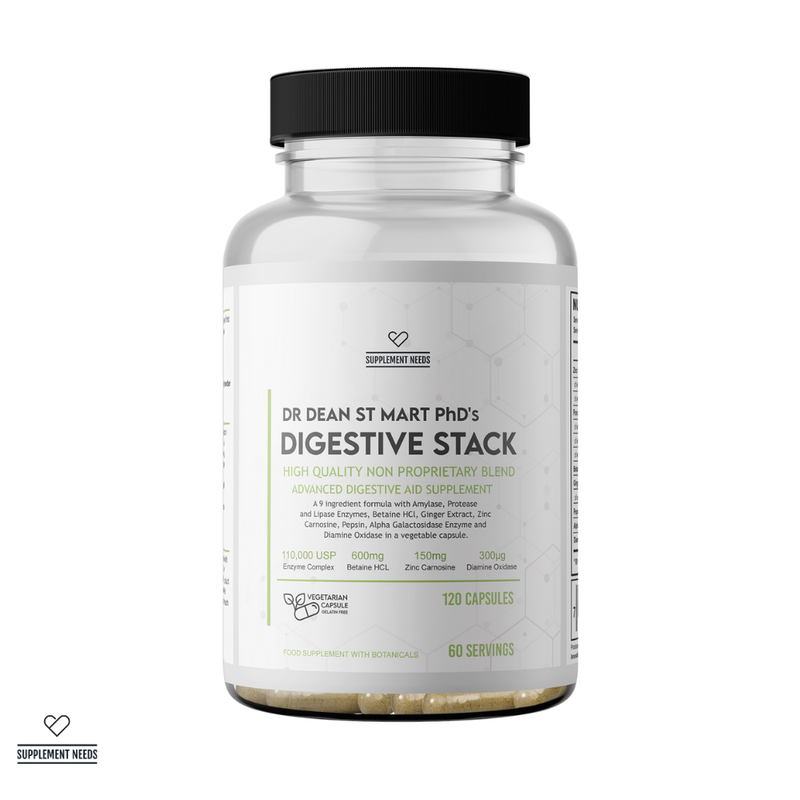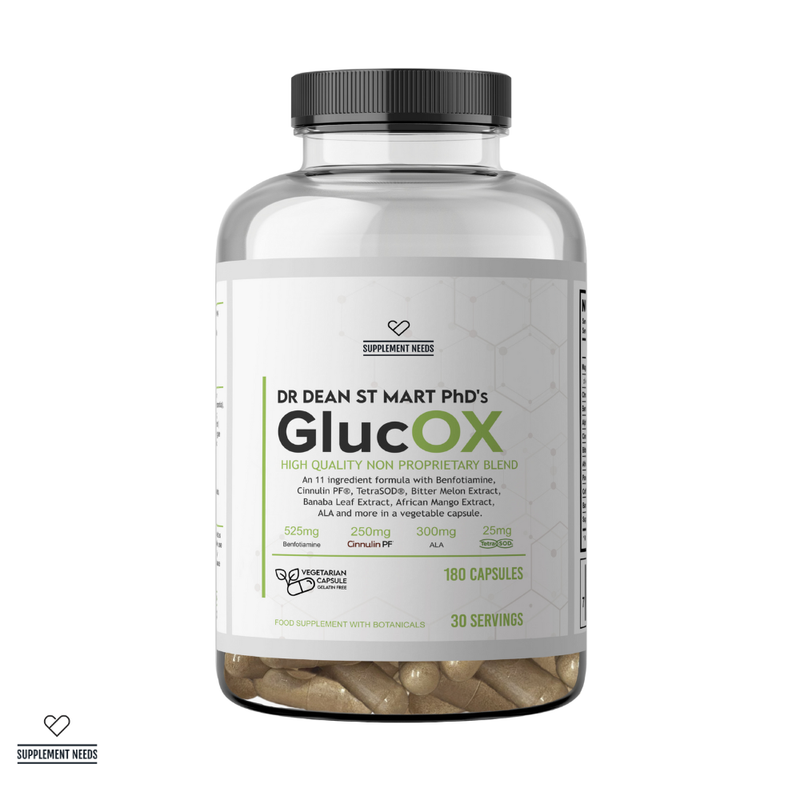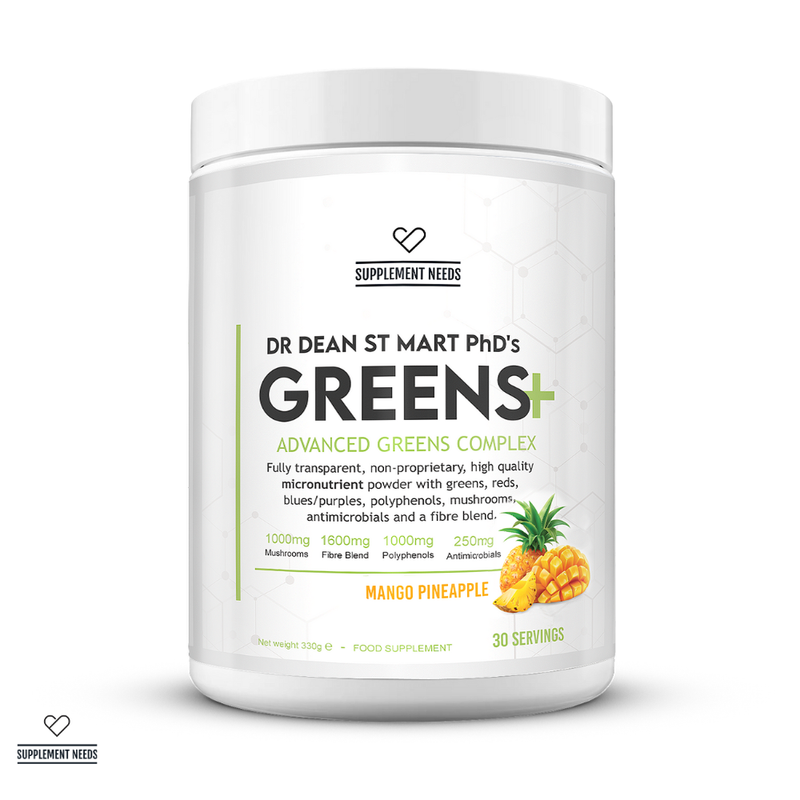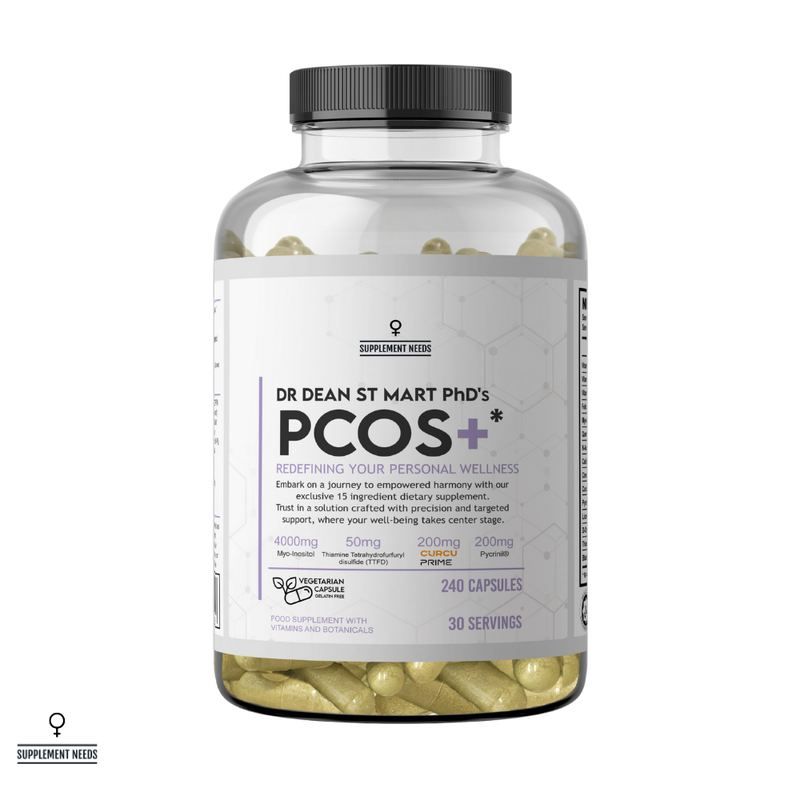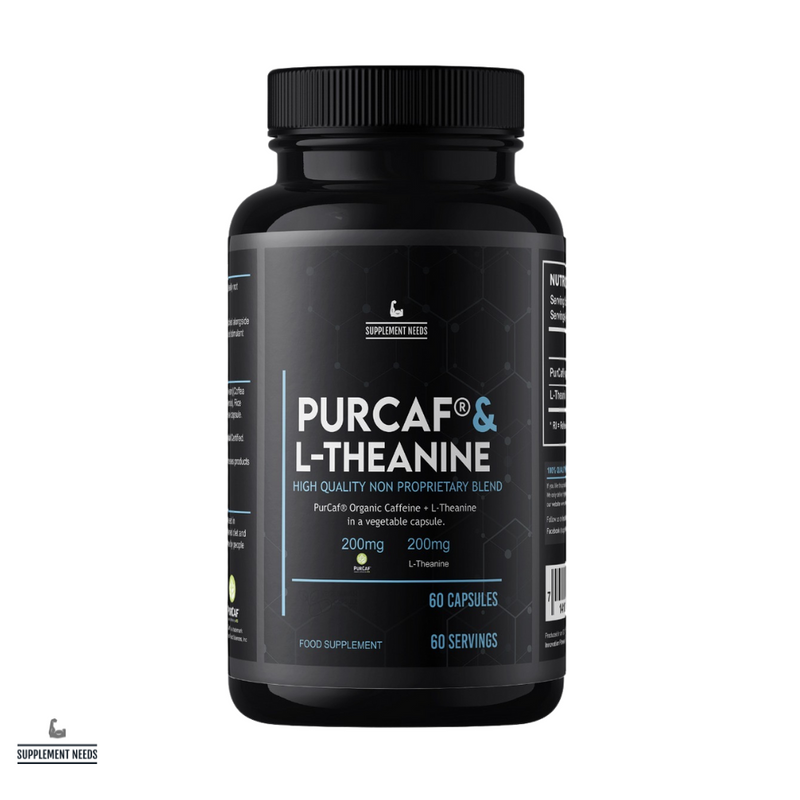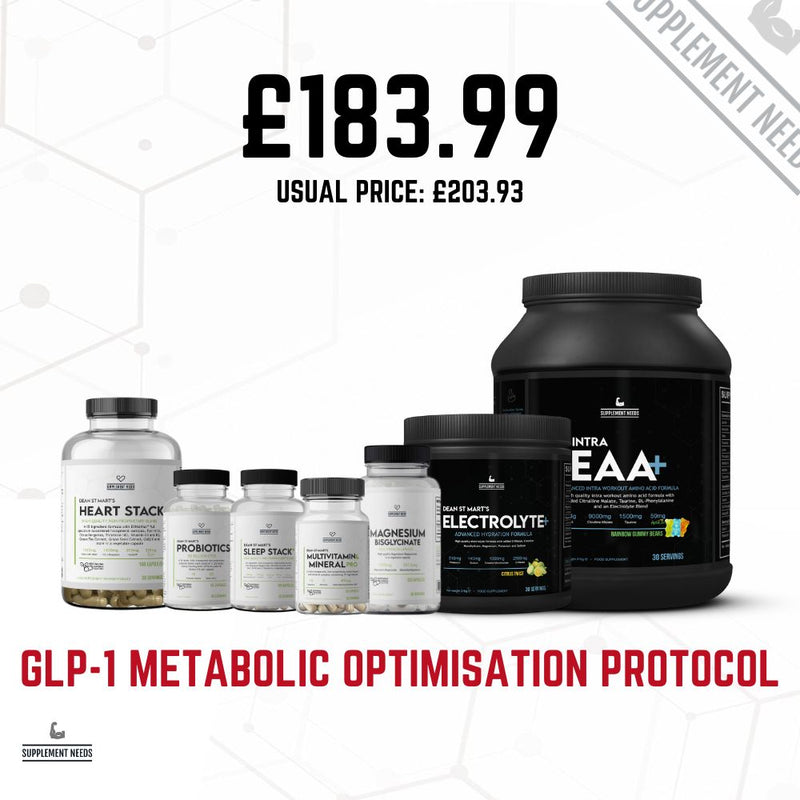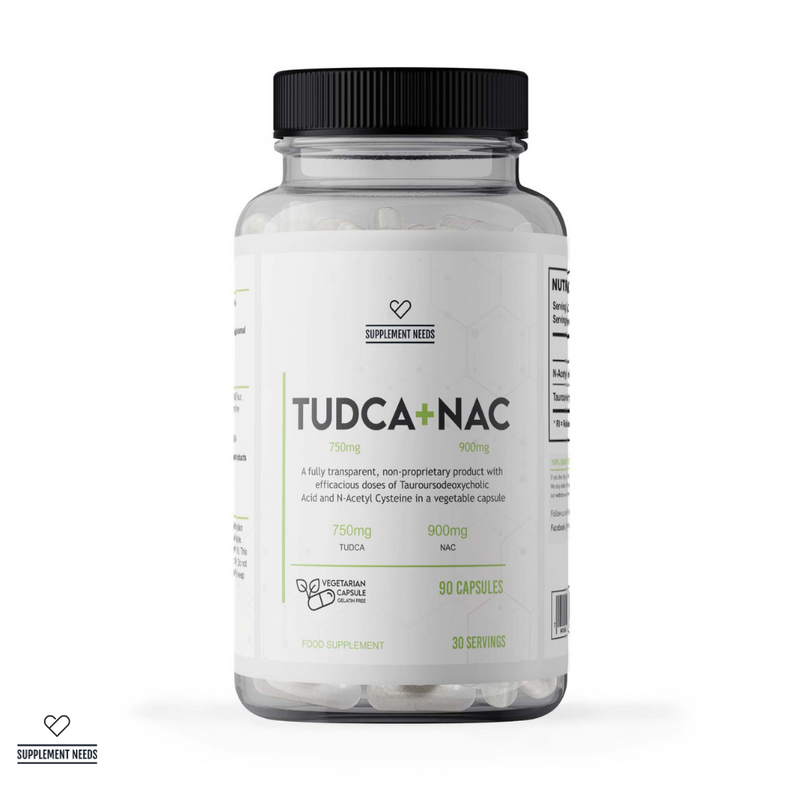Whilst a balanced and healthy diet should never be discounted, there are some supplementary ingredients that have been shown to support healthy liver function. Keep reading to learn more about some of the most common substances found in liver supplements, and what role they play in maintaining your liver health…
What does the liver do?
The liver plays a vital role in filtering toxins from your blood, regulating blood clotting (via the production of thrombopoietin), processing blood glucose and storing excess glucose as glycogen and much more. It also produces the bile (via bilirubin) used by your digestive system to break down fats and remove waste; and a protein called albumin, which prevents fluids from leaking into your tissues and acts as transport for hormones, vitamins and enzymes in the blood.
In short, you can think about your liver as being a ‘metabolic engine’, breaking down, balancing and creating the nutrients/metabolites your body’s metabolic processes require.
Yet, the liver’s strength is also (arguably) its weakness. As all the blood that leaves the stomach and intestines passes through the liver, and the liver effectively ‘filters’ this blood - the liver can become damaged over time if it has to filter excessive toxins such as alcohol.
Over time, this damage can accrue, resulting in cytotoxic hepatocellular injury which progresses as fibrosis, cirrhosis and even complete liver failure. This hepatic damage can be so severe that it results in mortality.
However, although liver damage is most commonly associated with excessive alcohol consumption, it’s possible to damage your liver through poor diet and lifestyle choices. Known as non-alcoholic fatty liver disease (NAFLD), this form of hepatic damage can also result in fibrosis and cirrhosis.
Bear in mind that poor liver function can result in second and third-order health impacts such as diabetes, high-blood pressure, and kidney disease. End-stage liver damage such as cirrhosis can also result in acute health impacts such as the development and bleeding of oesophageal varices.
In fact, studies have shown that the liver is the most frequently damaged organ outside the respiratory system.
To sum all this up - hepatic health (a.k.a. liver health) is important!
What supplements can potentially support liver health?
When it comes to supporting liver health, you’ve doubtless seen news articles expounding on the benefits of a variety of different ingredients. Whilst a lot of this should be taken with a pinch of salt, there are some natural substances that have been linked in studies to the support of normal liver function.
Milk thistle
Milk thistle, or Silybum marianum, has been used in holistic and traditional medicine for thousands of years – particularly for liver disorders and gallbladder ailments. This long-lasting belief in milk thistle extract as beneficial for liver health has even been proven by research into a combination of flavonolignans called silymarin. This substance, of which the primary bioactive component is called silybin, has been shown to perform three major roles in protecting the liver (Achufusi, Pellegrini & Patel, 2024):
- Anti-inflammatory: silymarin reduces inflammation by regulating the body’s cytokine response.
- Antioxidant: milk thistle can inhibit free radicals (unstable atoms), which helps to protect your cells from mutation and oxidative damage.
- Antifibrotic: silybin can help to reduce the formation of myofibroblasts in the liver, which have the potential to cause liver damage by thickening organ tissue.
Milk thistle has also been studied in relation to NAFLD (non-alcoholic fatty liver disease), where it was shown to have some benefits in reducing blood insulin and glucose levels, and alleviating symptoms.
Vitamin E
Vitamin E is a fat-soluble nutrient (covering a series of four tocopherols and four tocotrienols), and is considered to be one of the most potent antioxidants available. Whilst it’s typically associated with improving skin elasticity and appearance, Vitamin E has also been shown to be a promising ‘scavenger’ of oxidative stress compounds, which play a role in the spread of NAFLD (Vadarlis et al., 2020).
Oxidative stress is where there is an imbalance between free radicals and stable atoms. Antioxidants address this disparity, and help to protect your cells from harm.
Dandelion root extract
Dandelion, of the genus Taraxacum, is another plant that has been used in traditional medicines, especially in teas, that has demonstrated certain hepatoprotective properties due to two polysaccharides.
That is to say, dandelion root extract contains complex sugars that have the potential to protect liver health, particularly in instances of acetaminophen-induced liver damage (Cai et al., 2017).
Calcium D-Glucarate
Calcium D-Glucarate is a calcium salt form of D-Glucaric Acid, which has a vital role in maintaining liver health and effective detoxification processes. It does this through ‘four specific molecular pathways’ which includes ‘inhibiting β-Glucuronidase enzyme’ (Ayyadurai, Deonikar, & Fields, 2023).
Beta-glucuronidase is an enzymatic by-product of phase II liver detoxification. Whilst the body needs some of this enzyme to break down drugs, acidic bile, and other toxins, elevated levels can actually prevent your body from effectively removing these substances, leading to their reabsorption.
In simple terms, the best liver supplements contain Calcium D-Glucarate to help your liver process and remove toxins from the body.
Looking for a liver supplement with Calcium D-Glucarate? Discover Supplement Needs’ Liver Stack. Formulated by Dr. Dean St Mart PhD, Liver Stack contains 1,000 mg of Calcium D-Glucarate per eight capsule serving.
Tauroursodeoxycholic Acid (TUDCA)
TUDCA, or tauroursodeoxycholic acid, is derived from bile acid, and is influential in several bodily processes – including brain and kidney function, and liver health. Bile acids, like TUDCA, are vital for breaking down fat-soluble vitamins and cholesterol, in addition to destroying harmful bacteria that can enter the digestive system.
Whilst the human body naturally produces a small amount of TUDCA already, additional levels found in liver supplements can support your health.
For example, whilst more human studies are required, there is promising evidence to support the importance of TUDCA in reducing gut inflammation and decreasing intestinal fat transport to slow the progression of NAFLD (Wang et al., 2018).
As you would expect from the premium liver health supplement on the market, Supplement Needs Liver Stack contains 800 mg of TUDCA per eight capsule serving.
Supplement Needs has also developed a dedicated TUDCA+NAC supplement so that you can supplement your diet with two of the most important compounds that can support liver health.
Glutathione
Glutathione is a vital tripeptide, which means it’s made up of three amino acids called Cysteine, Glutamate, and Glycine. Alongside being a strong antioxidant (combating free radicals and preventing them from affecting your cells), Glutathione is a detoxifying agent that helps to protect your liver from toxin damage.
According to a 2017 study, oral ingestion of Glutathione significantly reduced alanine aminotransferase (ALT) levels, in addition to triglycerides, non-esterified fatty acids, and ferritin (Honda et al., 2017). ALT is released when liver cells are damaged, whilst high levels of triglycerides may point to liver problems. Lowering these suggests that Glutathione supplementation can potentially promote liver health.
When you’re looking for the best liver supplements containing Glutathione, delivery method matters. Liposomal Glutathione, like we provide here at Supplement Needs, is a more bioavailable form, meaning your body can get maximum value from each dose.
If you’re interested in learning more, find a more in-depth explanation in our guide covering What Does it Mean When a Supplement is Liposomal?
N-Acetyl-Cysteine (NAC)
N-Acetyl-Cysteine is commonly found in premium liver supplements because it plays a supporting role in protecting and maintaining liver health. The supplementary form of Cysteine (an essential amino acid), NAC is primarily known for its anti-inflammatory and anti-oxidising properties – which has been linked with improved liver health and function (Dludla et al., 2020).
In addition to this, N-Acetyl-Cysteine is a key component in the production of Glutathione, which can also help to potentially protect your liver.
For premium supplements utilising NAC, explore Supplement Needs’ TUDCA + NAC.
Choline
Choline is a vital nutrient used for a variety of processes in the body, including metabolising substances and transporting lipids (fats).
The latter process in particular is important for liver health, as insufficient Choline levels can lead to a build-up of cholesterol in the liver, which could lead to suboptimal hepatic health outcomes. Low Choline levels can also lead to fatty liver, which can cause damage to your liver health (Mehedint & Zeisel, 2014).
Whilst the human body produces a small amount of Choline endogenously in the liver, this is not enough to meet overall bodily demand – thus, it’s necessary to obtain Choline from exogenous external sources such as foodstuffs (or supplements).
Note - studies have shown that the majority of people do not obtain sufficient Choline (even via dietary sources). As one study suggested, ‘Given the importance of Choline in a wide range of critical functions in the human body, coupled with less than optimal intakes among the population, dietary guidance should be developed to encourage the intake of Choline-rich foods’.
As you would expect, Supplement Needs Liver Stack contains Choline. It has been formulated to contain the most bioavailable form of Choline - L-Choline Bitartrate. This is a form of Choline that has been combined with a salt of Tartaric Acid. As a strong organic acid, Tartaric Acid effectively ‘assists’ the Choline in passing through the wall of your small intestine - thus achieving excellent absorption beyond Choline alone.
Supplement Needs Liver Stack contains 800 mg of L-Choline Bitartrate per eight capsule serving.
Inositol
Often erroneously referred to as Vitamin B8, Inositol is not, in fact, a vitamin, but a type of sugar which has a number of important roles to play within the body, including influencing the action of insulin and playing a structural role within cell membranes.
However, studies have suggested that Inositol may have a positive impact upon liver function. A systematic review (Arianna P, Giossi R, Menichelli D, et al., 2020), found that ‘INS (Inositol) supplementation in animal models of fatty liver reduced hepatic triglycerides and cholesterol accumulation and maintained a normal ultrastructural liver histopathology’. The same literature review also found that a randomised controlled trial pointing to Pinitol (a naturally occurring Inositol) supplementation resulting in ‘significantly reduced liver fat, postprandial triglycerides, AST levels, lipid peroxidation increasing glutathione peroxidase activity’.
That’s why, if you’re looking for a premium liver supplement, you should look for Inositol on the label.
Supplement Needs Liver Stack contains 800 mg of Inositol per eight capsule serving.
Diindolylmethane (DIM)
Diindolylmethane - also known by the acronym DIM - is a natural compound that occurs in cruciferous vegetables (e.g. cauliflower, sprouts, broccoli etc). It is actually derived from the metabolization of Indole-3-Carbinol.
But, what exactly does it do?
Researchers have discovered that DIM can enhance the activity of enzymes within certain liver pathways. More specifically, one study (Tomar S, Nagarkatti M, Nagarkatti P, et al. 2015) has suggested that 3,3’-Diindolylmethane ‘decreases liver infiltration of MNCs (mononuclear cells) in liver tissue and decreases macrophage activation in the infiltrating MNCs’.
In addition to the potentially protective effect of DIM on liver function, studies have also suggested a link between Diindolylmethane and anticancer effects. One study, (Zhang W, Feng Z, Narod S, 2014) has suggested that 3,3’-Diindolylmethane could have therapeutic and preventive effects against prostate cancer.
Another study (Zhang G, Lu A, Zhu H, 2016) has indicated ‘strong evidence to support the use of DIM as an anticancer and therapeutic agent for gastrointestinal cancer’.
As you can see, DIM is a compound that could have a range of potential health benefits.
Supplement Needs Liver Stack contains 200 mg of Diindolylmethane per eight capsule serving.
Ox Bile Extract
Another supplement that can potentially support healthy liver function is Ox Bile Extract.
Ox Bile Extract is - in essence - a synthetic form of bile that is typically mixed with digestive agents such as protease, amylase, lipase etc. Whilst your liver will produce bile itself, Ox Bile Extract can potentially improve bile flow, ensuring your gallbladder has sufficient bile for the digestion of food within the small intestine.
Further, Ox Bile Extract can potentially lower cholestasis - a condition in which bile flow becomes reduced due to impaired secretion by hepatocytes (or obstruction of bile flow through bile ducts).
In short, Ox Bile Extract is often to be found within high-quality liver supplements.
No surprise, then, to find that Supplement Needs Liver Stack contains an impressive 1,000 mg of Ox Bile Extract per eight capsule serving.
What to look for in a liver supplement
As you can see, there are a whole host of liver supplement ingredients that can each play a role in supporting healthy liver function. So how do you know which are the best supplements for you?
At Supplement Needs, we recommend looking out for the following:
- Expertly designed liver supplement formulas: taking dozens of liver supplements isn’t practical, so look for formulations that can be stacked to reduce the number of capsules needed to support your liver health (such as our all-in-one Liver Stack!).
- Only practical ingredients: the best liver supplements only contain valuable ingredients that will have a positive effect on your body. At Supplement Needs, our liver health supplements are specifically formulated so that every component has a practical use in supporting your wellbeing.
- Total ingredient transparency: when you’re incorporating additional supplements into your diet, you should always know what you’re putting in your body. We ensure that we (and therefore you) know the source of every ingredient we use, including exactly which part of the plant an extract is from.
Liver health backed by knowledge from Supplement Needs
When it comes to choosing liver supplements, you deserve the best.
At Supplement Needs, we can confidently back our range of liver health supplements because of the research, development, and formulation conducted by Dr. Dean St Mart PhD.
With a double first class honours in Chemistry and Pharmaceutical Chemistry from the National University of Ireland Maynooth, and a PhD in Synthetic Organic Chemistry and Fluorescence Spectroscopy, you can trust that our supplements range are built on a strong foundation of expert knowledge.
If you need any more convincing, we’ve even made it easy for you to purchase supplements online. Get free shipping on any order over £20, AND same-day despatch is available Monday - Friday (on orders made before 3pm). There’s simply no reason not to!
